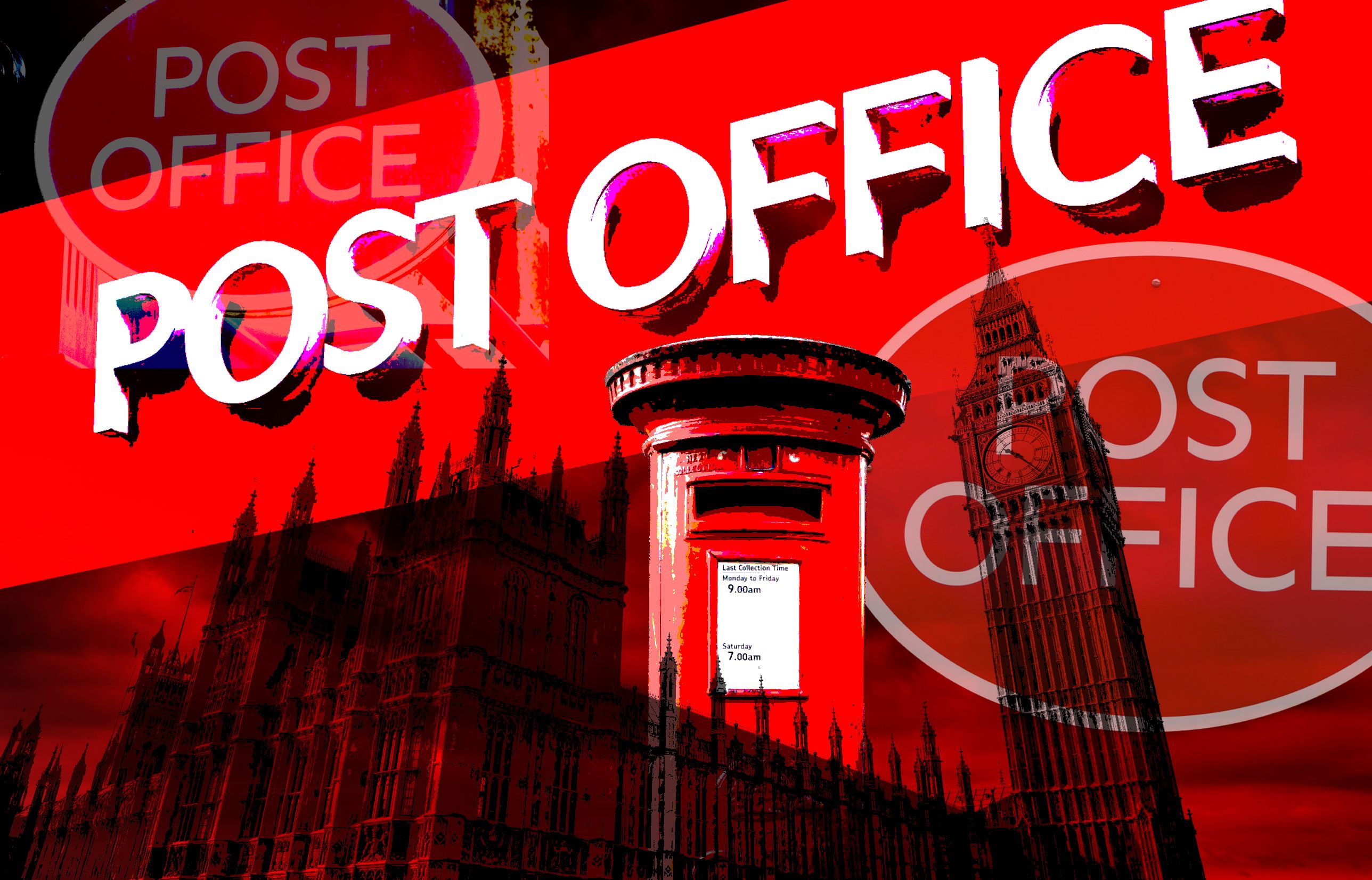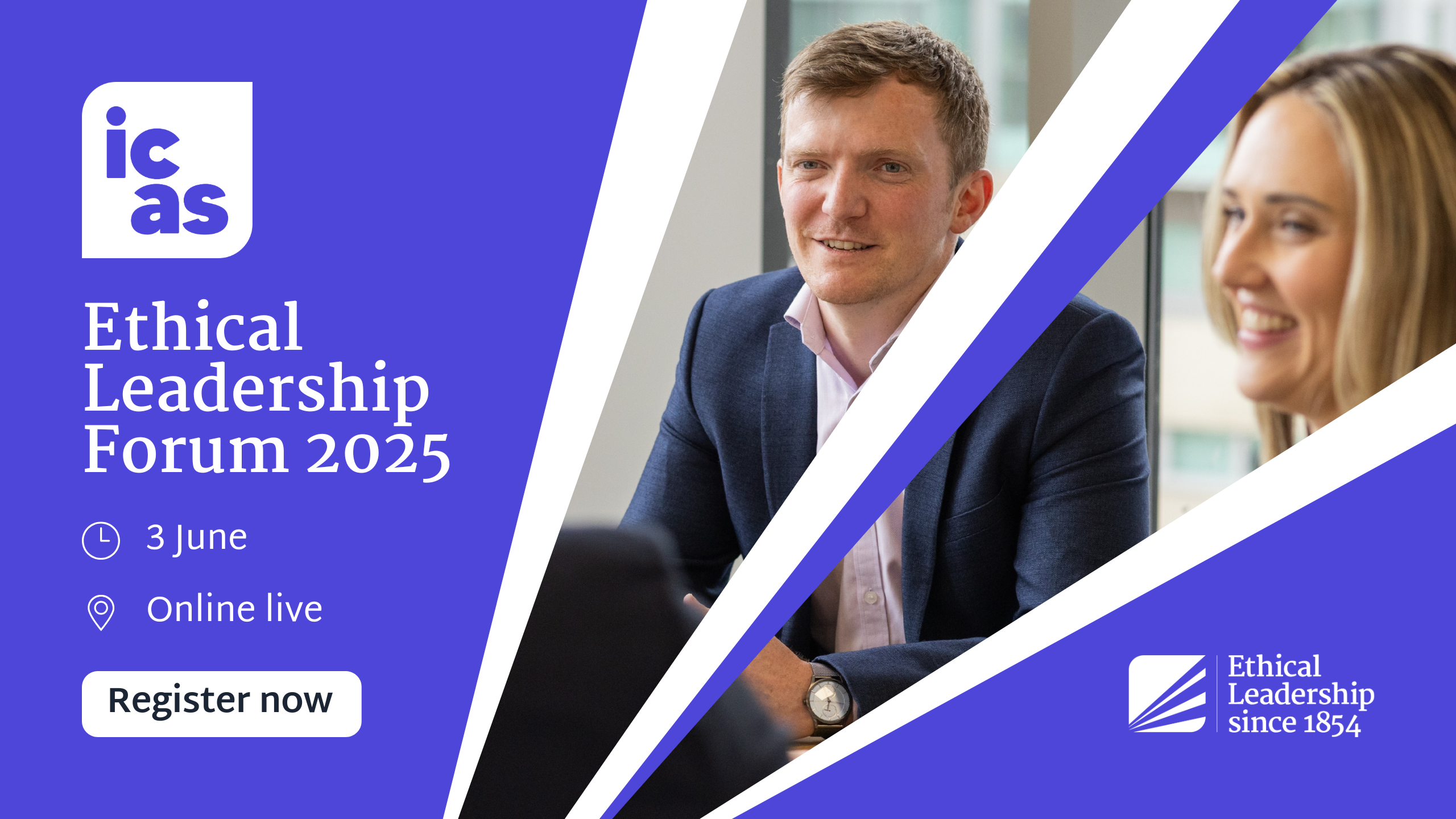Doing the right thing

Doing the right thing

Ahead of next month’s Ethical Leadership Forum, Mary Campbell CA says that without good governance, even great institutions such as the Post Office can be floored by cowardice and self-interest
Ethics should be in the DNA of any profession, not just accounting or law. When I came into chartered accountancy 40 years ago, I was acutely aware that one of our duties was to act in the public interest. That is, after all, why ICAS has a Royal Charter in recognition of its importance to society.
But over the course of my working life the rewards going to the people at the top – the CEOs and directors – have become so much greater; and for too many, employment has become fragile as economic power has consolidated into fewer organisations, too often with unethical consequences. Everyone loses when professionals stop speaking out and saying, “Sorry, but this is wrong”.
That is one of the reasons why I think the first ICAS Ethical Leadership Forum is so important, and why ICAS members should make a point of watching the event online on 3 June – because the temptation to look the other way and put rewards above principles is only likely to increase with new technology.
I will be a member of the panel billed “The Importance of Having an Ethical Culture and How This is Achieved”. That will be followed by another – “The Ethical Implications of New Technologies” – which I will be viewing with great interest as the growth of AI makes this discussion more timely than ever.
I recently completed the Power MBA in AI. Even during this brief programme, you could see the technology’s change in capabilities – it was incredible to witness. The course leaders who run these programmes said they record five lectures on a Monday, and by Wednesday typically find that two of them are out of date.
So, I’m looking forward to a discussion about what happens if we allow algorithms to dictate professional advice. Where does ethics sit within that?
Lightbulb moment
We have, of course, already seen the danger of relying on outcomes produced by computers to justify decisions without the careful scrutiny and oversight of humans. The keynote speech for the Ethical Leadership Forum will be given by Nick Wallis, author of The Great Post Office Scandal and series consultant on Mr Bates vs the Post Office.
Back in the 1990s, my first appointment as a non-executive director was in a business that had a dozen sub postmasters’ contracts, so I was alert to the comments made about the new computer system. I paid attention when Alistair Darling refused to proceed with the rollout of Horizon into the benefits system. Later, when the post mistress on Barra unexpectedly gave up her contract blaming the “Horizon black box”, I asked why.
“When things are killed – as happened to the reports compiled by the barrister Simon Clarke and Second Sight forensic accountants – then it goes right to the very top”
So when the Institute of Directors, for which I teach governance, asked one of its course leaders to look at the Post Office scandal, I immediately said yes. I had struggled for decades to understand what was really going on in the Post Office and with its owners, the Royal Mail Group and the government.
Watching the public inquiry, I was absolutely dumbfounded when it was revealed that the then CEO, Paula Vennells, had insisted on removing references to Horizon from the “risks” section of the prospectus for the group’s privatisation in 2013. It was a lightbulb moment: it seemed clear it could have been done to help facilitate a smooth sale, to get money into the exchequer. Supposedly it was for the public good – but in fact it resulted in ruined lives, deaths and a bill for UK taxpayers that would have bankrupted any private sector business.
I have been the lead adviser on privatisations and flotations. I know hundreds of thousands of professional hours go into getting a prospectus to the point where it’s ready to be signed off. The directors sign a tome which is hundreds of pages long, confirming they have gone through every clause and can verify every statement being made. You have to state the risks in a way that’s far beyond what you do when preparing the annual accounts.
Ahead of next month’s Ethical Leadership Forum, Mary Campbell CA says that without good governance, even great institutions such as the Post Office can be floored by cowardice and self-interest
Ethics should be in the DNA of any profession, not just accounting or law. When I came into chartered accountancy 40 years ago, I was acutely aware that one of our duties was to act in the public interest. That is, after all, why ICAS has a Royal Charter in recognition of its importance to society.
But over the course of my working life the rewards going to the people at the top – the CEOs and directors – have become so much greater; and for too many, employment has become fragile as economic power has consolidated into fewer organisations, too often with unethical consequences. Everyone loses when professionals stop speaking out and saying, “Sorry, but this is wrong”.
That is one of the reasons why I think the first ICAS Ethical Leadership Forum is so important, and why ICAS members should make a point of watching the event online on 3 June – because the temptation to look the other way and put rewards above principles is only likely to increase with new technology.
I will be a member of the panel billed “The Importance of Having an Ethical Culture and How This is Achieved”. That will be followed by another – “The Ethical Implications of New Technologies” – which I will be viewing with great interest as the growth of AI makes this discussion more timely than ever.
I recently completed the Power MBA in AI. Even during this brief programme, you could see the technology’s change in capabilities – it was incredible to witness. The course leaders who run these programmes said they record five lectures on a Monday, and by Wednesday typically find that two of them are out of date.
So, I’m looking forward to a discussion about what happens if we allow algorithms to dictate professional advice. Where does ethics sit within that?
Lightbulb moment
We have, of course, already seen the danger of relying on outcomes produced by computers to justify decisions without the careful scrutiny and oversight of humans. The keynote speech for the Ethical Leadership Forum will be given by Nick Wallis, author of The Great Post Office Scandal and series consultant on Mr Bates vs the Post Office.
Back in the 1990s, my first appointment as a non-executive director was in a business that had a dozen sub postmasters’ contracts, so I was alert to the comments made about the new computer system. I paid attention when Alistair Darling refused to proceed with the rollout of Horizon into the benefits system. Later, when the post mistress on Barra unexpectedly gave up her contract blaming the “Horizon black box”, I asked why.
“When things are killed – as happened to the reports compiled by the barrister Simon Clarke and Second Sight forensic accountants – then it goes right to the very top”
So when the Institute of Directors, for which I teach governance, asked one of its course leaders to look at the Post Office scandal, I immediately said yes. I had struggled for decades to understand what was really going on in the Post Office and with its owners, the Royal Mail Group and the government.
Watching the public inquiry, I was absolutely gobsmacked when it was revealed that the then CEO, Paula Vennells, had insisted on removing references to Horizon from the “risks” section of the prospectus for the group’s privatisation in 2013. It was a lightbulb moment: it seemed clear it could have been done to help facilitate a smooth sale, to get money into the exchequer. Supposedly it was for the public good – but in fact it resulted in ruined lives, deaths and a bill for UK taxpayers that would have bankrupted any private sector business.
I have been the lead adviser on privatisations and flotations. I know hundreds of thousands of professional hours go into getting a prospectus to the point where it’s ready to be signed off. The directors sign a tome which is hundreds of pages long, confirming they have gone through every clause and can verify every statement being made. You have to state the risks in a way that’s far beyond what you do when preparing the annual accounts.
Ethical Insights
Ethical leadership is what ICAS is all about. It’s integral to cultivating trust and is a commitment that unites our vibrant community of business and finance professionals.
In a series of impactful stories, business leaders, including Mary Campbell CA, share personal insights into what it means to do the right – or ethical – thing throughout a career. We hope these conversations will provide practical guidance for anyone who finds themselves in a challenging professional situation where they are required to seek the truth and then act.
We’ve combined these individual interviews with the results from a 2024 quantitative survey of ICAS members, adding rigour and thoroughness to the individual responses showcased in the report.
Read our first Ethical Insight now
When things are killed – as happened to the advice from barrister Simon Clarke and the report compiled by Second Sight forensic accountants, which highlighted serious concerns, including covering up unsafe prosecutions and bugs within the Horizon IT system – then it goes right to the very top. That’s why I reached out to Flora Page KC and Edward Henry KC, who interrogated Vennells at the inquiry, and to Wallis to explain my concerns about the extent of the cover-up.
Ultimately, I hope watching the ICAS Ethical Leadership Forum will underscore for members the importance of reflecting on the consequences of their actions. I would like all professionals to read the evidence of Millie Castleton, who was just eight years old when her father became one of this scandal’s many victims, so they realise that it’s not just the medical professionals who have children’s lives in their hands – we do too.
It goes back to what I said at the start: what are we here to do as a profession? Are we here to serve the interests of companies or of the public?
As a CA, you already know the answer to those questions. The ICAS Ethical Leadership Forum will provide a compelling illustration of why we must never allow fear or self-interest to cloud that judgement.
Register now for the ICAS Ethical Leadership Forum
ADVERTISEMENT




